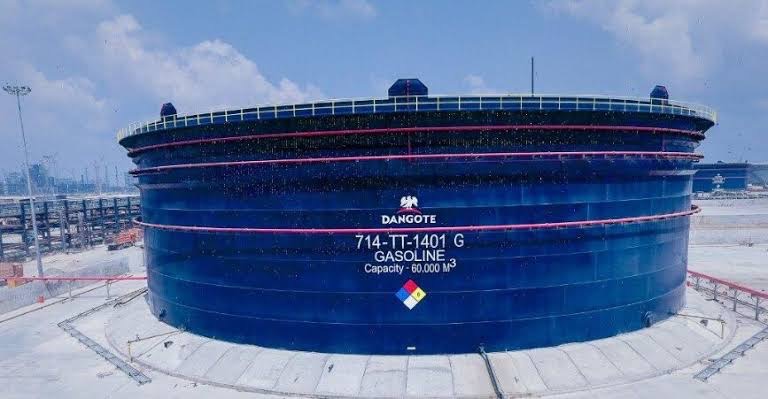KEY POINTS
- Dangote Group dismissed claims by petroleum marketers that its refinery sells petrol cheaper to international traders than to Nigerians, calling the allegations false.
- The company said petrol in Lomé, Togo, costs about N1,826 per litre—more than double Nigeria’s N865 per litre—proving that local prices remain the lowest in the region.
- Dangote accused some marketers of prioritising profits through cross-border arbitrage rather than ensuring steady domestic supply.
Dangote Industries Limited has pushed back against allegations by petroleum marketers that its refinery is giving preferential petrol prices to foreign traders, insisting that Nigeria remains the cheapest source of fuel in West Africa.
The rebuttal comes after the Depot and Petroleum Products Marketers Association of Nigeria (DAPPMAN) claimed that some of its members were forced to buy Dangote’s petrol through intermediaries in Lomé, Togo, where it was allegedly being sold at about N65 per litre cheaper than in Nigeria.
DAPPMAN’s Executive Secretary, Olufemi Adewole, said the price discrepancy placed Nigerian marketers at a disadvantage.
But Dangote described the claims as false and misleading, noting that a quick comparison of pump prices between the two countries invalidates the marketers’ position.
The company said: “It is incorrect to claim that the price of petrol in Togo is lower than in Nigeria. A straightforward check reveals that the average pump price in Lomé stands at approximately N1,826 per litre, more than double the N865 per litre currently paid at Nigerian pumps.”
Dispute Highlights Rift Between Refinery and Marketers
The company further argued that DAPPMAN’s claims risk distorting public perception about the refinery’s pricing model. According to Dangote, Nigeria’s pump price remains the lowest in the sub-region, even though the refinery imports over 60 percent of its crude oil for processing.
The firm stressed that local partners are already granted preferential treatment through incentives such as bulk purchase discounts, extended credit lines, and logistical support designed to ease supply chain pressures.
Industry observers say the clash between Africa’s largest privately owned refinery and fuel marketers reflects the deeper struggle to balance affordability with profitability in Nigeria’s downstream sector.
While the government continues to grapple with inflationary pressures and calls for energy security, disputes like this risk unsettling an already fragile fuel market.
Dangote also accused some marketers of engaging in arbitrage by diverting petrol into neighbouring countries, where prices are significantly higher, instead of prioritising Nigeria’s domestic needs.
“What we see is not about affordability but about some marketers choosing to exploit regional price gaps at the expense of Nigerian consumers,” a company spokesperson added.
The company reiterated its commitment to domestic supply, urging marketers to work directly with the refinery rather than rely on intermediaries or push narratives that misrepresent regional realities.
For now, the refinery remains firm on its position that it has given Nigeria a competitive edge in fuel pricing, at least within West Africa. The larger question is whether marketers and regulators can find common ground in stabilising a sector that has long been plagued by inefficiency, price distortions, and mistrust.



